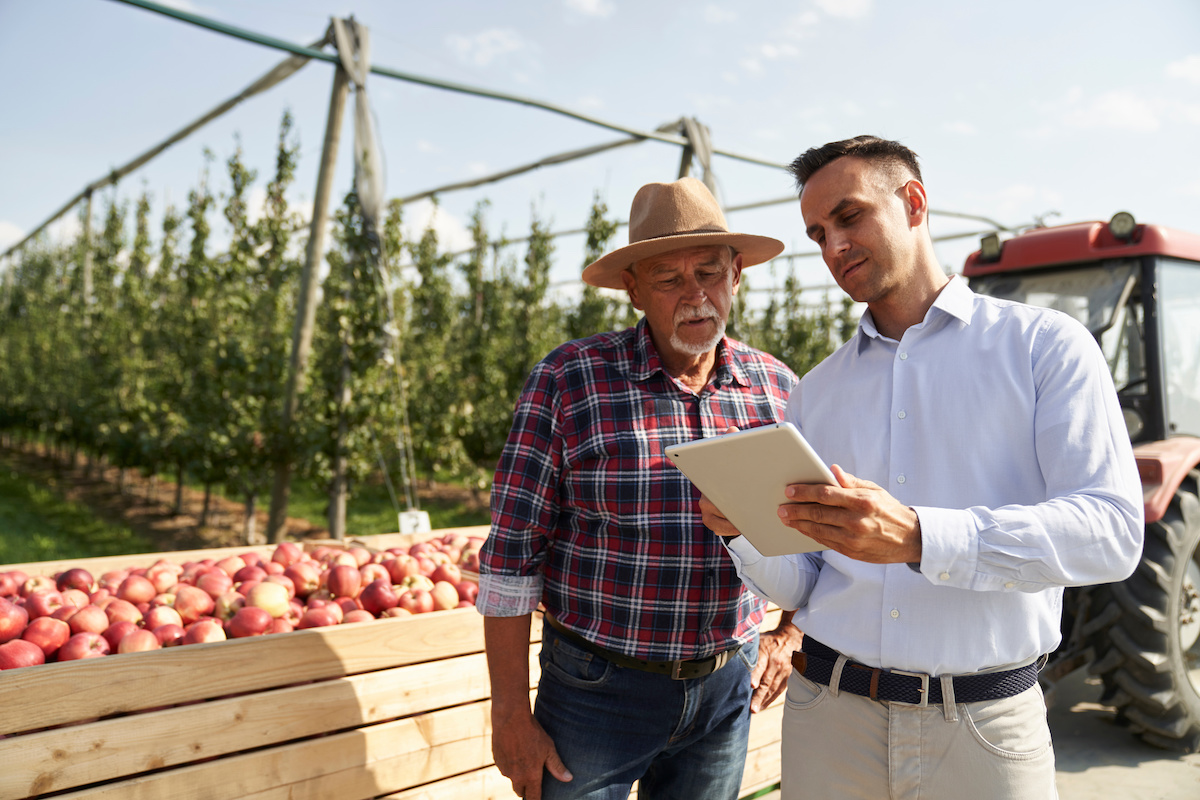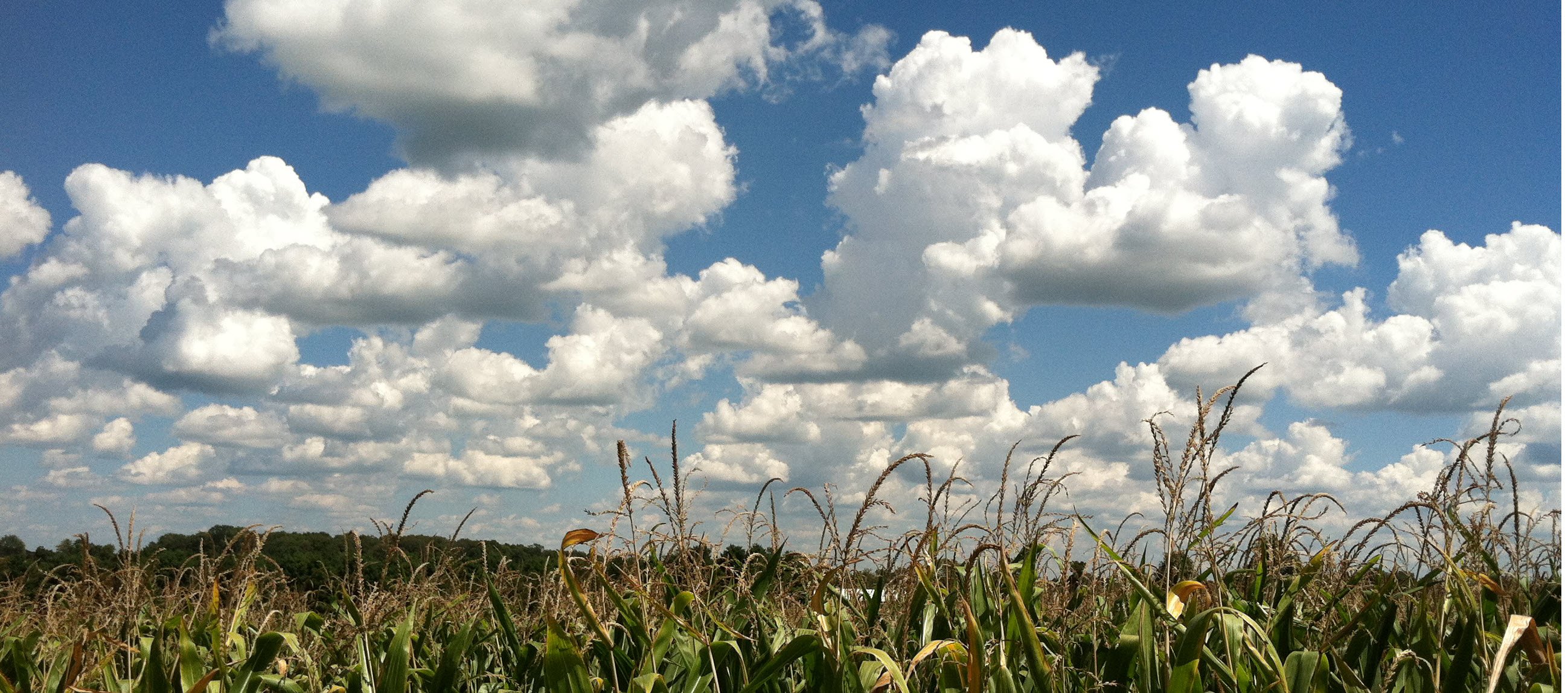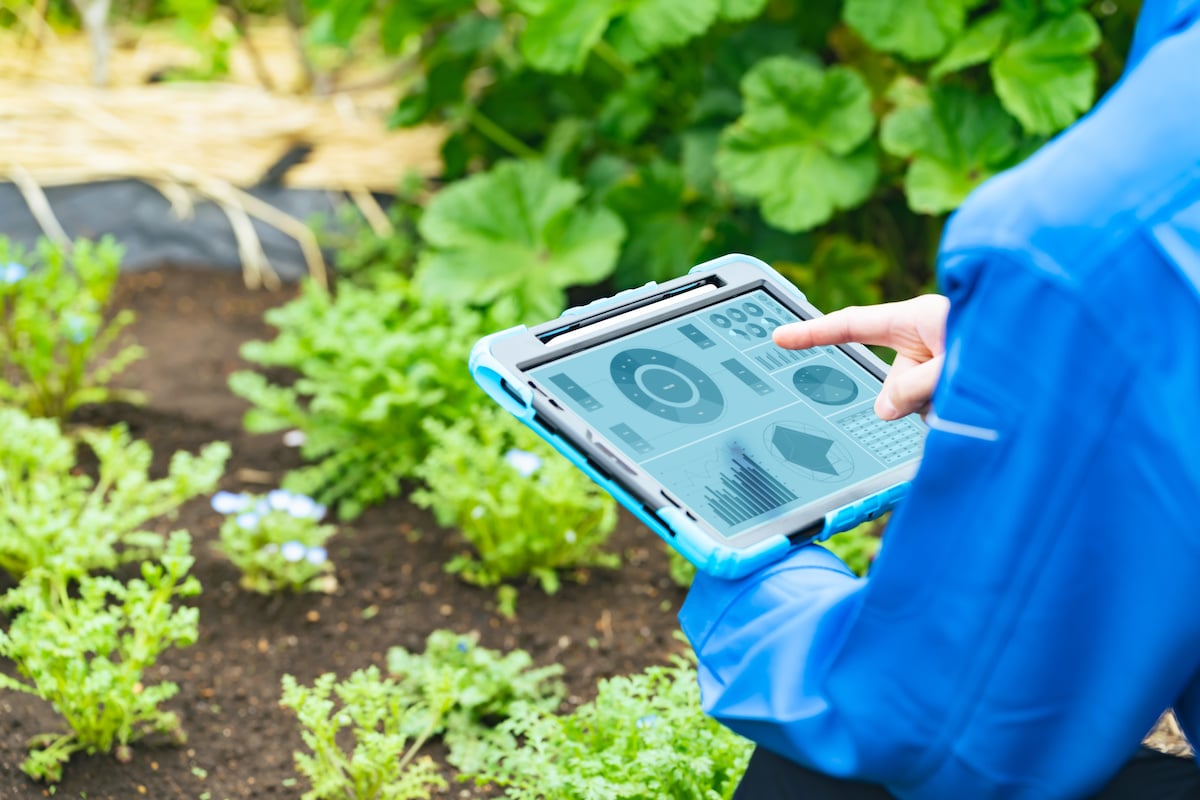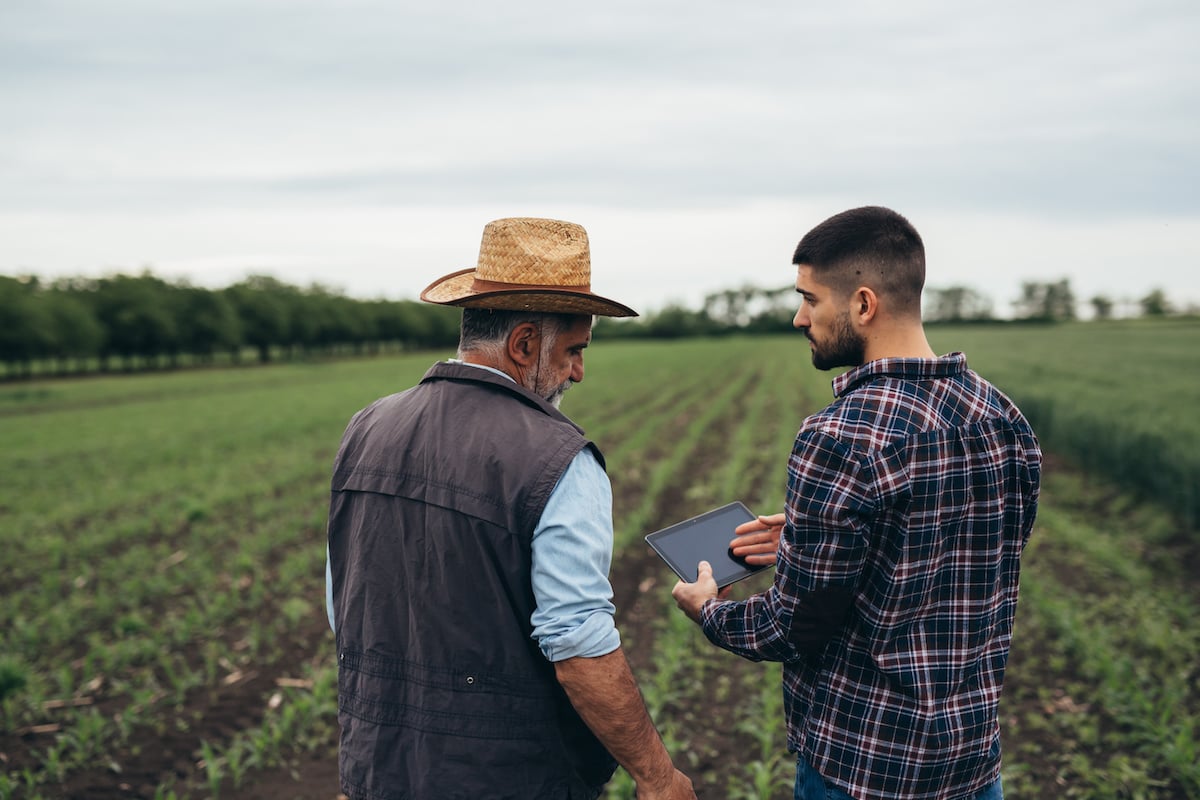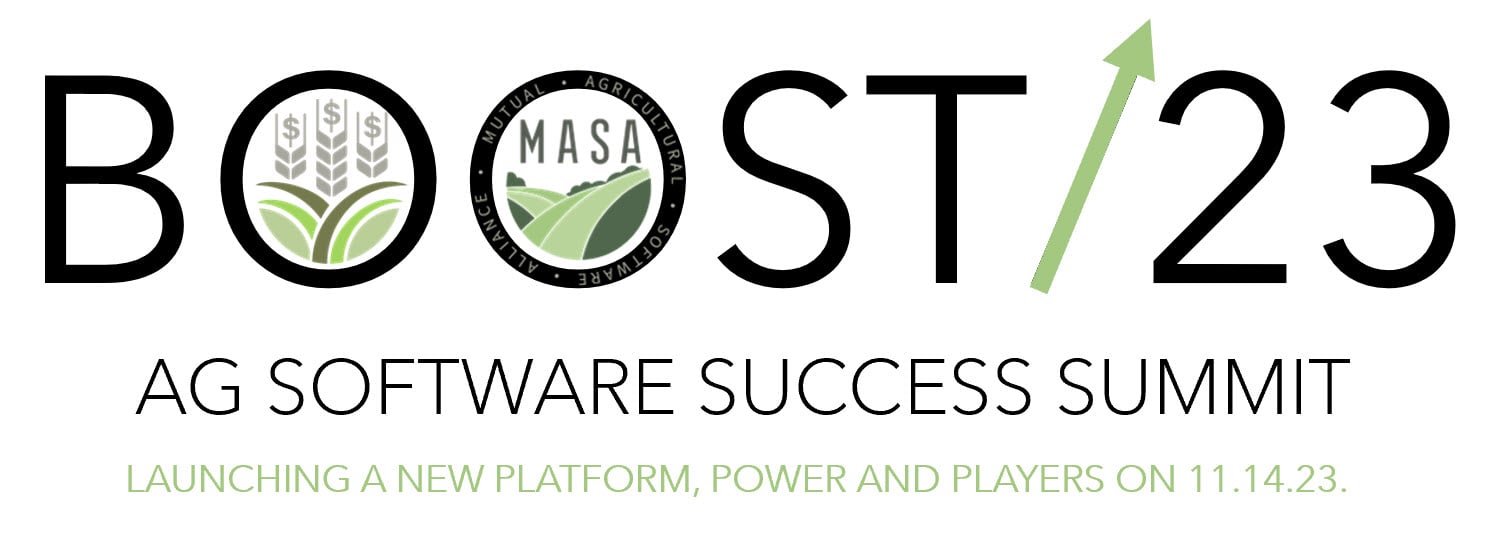According to IBM, business intelligence isn’t a new concept. But, it wasn’t until the 1990’s that data management systems really took off, despite their complexity. At this stage of development, anyone who wanted to use business intelligence tools needed an IT specialist to help them understand and utilize the software. Today, we’ve reached a point where business intelligence tools are being adopted for all kinds of uses, even farm operations and management.
Without data, farmers might miss out on a range of opportunities to improve their farms. These business intelligence tools make data processing quick and easy. And, with real-time information, farmers can get an accurate picture of their entire enterprise thanks to integrated tools and applications. So, what is business intelligence, and how can farmers leverage business intelligence tools for their agricultural operations?
Quick Links
- What is Business Intelligence?
- Data Collection Through Business Intelligence Tools
- The Benefits of Business Intelligence Tools in Agriculture
- Explore BI Tools with FBS Systems
What is Business Intelligence?
Your data collection methods, analyses, and integrated tools can all be combined into one overarching concept: business intelligence (BI). All of these tools and processes, when working in harmony, produce comprehensive insights that drive business decisions.
As any business grows, they’ll also want to make their operations as efficient as possible. Business intelligence tools help farmers achieve this by speeding up internal processes, easing customer and vendor interactions, and generating detailed financial reports. All of these, when put together using cloud computing and integrated technologies, can increase profitability and management effectiveness.
With business intelligence tools, farmers can view their operations through a new lens. In fact, Microsoft’s Power BI™ tool takes raw data gathered by integrated software and presents it in a visual manner. Such data visualization makes it possible to evaluate information as it’s gathered and transform it into more useful information, like crop maps, breeding timelines, and financial trends overtime.
Data Collection Through Business Intelligence Tools
For business intelligence to function effectively and help farmers reach their goals, they need to first gather the data. It’s no surprise that new technologies are being developed in the agricultural industry, many of which are designed to ease any struggles with data collection.
One technology is Internet of Things (IoT) integrated devices. In conjunction with enterprise resource planning (ERP) software, IoT devices can collect and transfer real time data to a format that’s easily accessible.
For example, consider a drone. This new farm tech is being used to better understand weather and crop conditions, among other things. According to the National Institute of Food and Agriculture, “by efficiently collecting large amounts of data, drones can help guide better decision making, greater advances in plant and animal breeding, and more profitable and sustainable management.”
As drones gather data, the information is sent directly via cloud connections to the farm ERP software where it can be translated into meaningful insights. Overtime, users will begin to see patterns and trends that inform them of their farm operations, uncovering new insights that help farm managers make more informed decisions.
In this example, the process from start to finish does a good job showcasing the power of business intelligence tools for farms. Each piece alone has an individual function. But, when pairing devices with management tools to inform processes, farmers can use business intelligence to operate at a higher level of productivity.
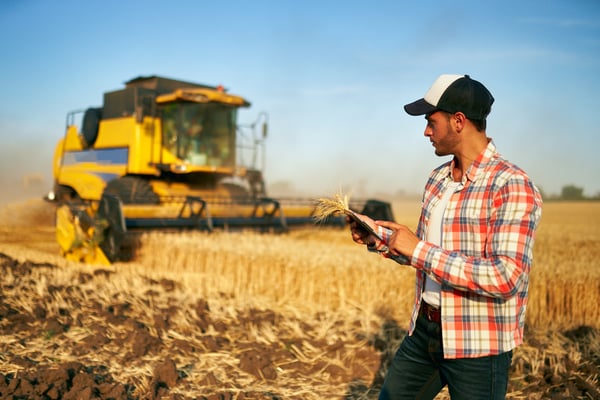
The Benefits of Business Intelligence Tools in Agriculture
A well structured business intelligence system can introduce a wide range of productivity and performance benefits for farming businesses. With a cohesive system in place, your business intelligence tools will work together to deliver data, generate useful reports, and help inform your decisions as you grow your business.
Decision Making
As stated previously, BI systems can take real-time data and present new insights. This information is critical for data-driven decision making on farms. With BI insights, farmers can avoid costly mistakes and drive operations in a positive direction established by valuable data findings.
When working with stakeholders who aren't involved in day-to-day operations, they might need to see evidence to support any business-related decisions. That’s where business intelligence tools help throughout the generation of analyses that can be presented to support future decisions. Now, with accurate insights, farmers can allocate resources to areas where they are needed most.
Forecasting
With regular data evaluations, trends and patterns will start to emerge. This can help farmers better understand their production cycles and plan around harvesting crops. Using historical data, business intelligence may improve your planning so you won’t have to start from scratch with each new production cycle.
With the data and insights generated from business intelligence tools, farmers might notice abnormalities appear in the data. So, when these instances occur, farmers and their teams can evaluate the information to understand why there are inconsistencies that stray from benchmarks and make proper adjustments to their operations.
Ag Tech Integrations
To find meaning in data, the technology you use needs to effectively communicate with each other. Too many tools that work independently of one another can complicate your ERP system. However, integrated applications that support other tools can ease some of the challenges that farmers face.
For example, in your BI system, your data collection tools and IoT devices send raw information to your farm ERP software. That software can then take that data and generate financial reports that align with the guidelines established by the Farm Financial Standards Council (FFSC). After these reports are developed and reviewed, they can be displayed on custom integrated dashboards and shared to users and stakeholders that need to view them.
Explore BI Tools with FBS Systems
More tools doesn’t always mean a higher quality system. Each new device or software that you incorporate into your farm needs to work together to help you accomplish your goals. A well-rounded cloud-capable farm ERP system that promotes an efficient BI ecosystem will remove setbacks in your processes and promote accurate data insights.
The software tools developed by FBS Systems are designed to be an all-in-one ERP solution where farmers can manage their operations and evaluate their business. In partnership with the Mutual Agricultural Software Alliance (MASA), FBS gives farmers access to up-to-date data that will help them improve their operations across their enterprise. To learn more about our farm ERP tools for business intelligence, reach out to our team right away!



